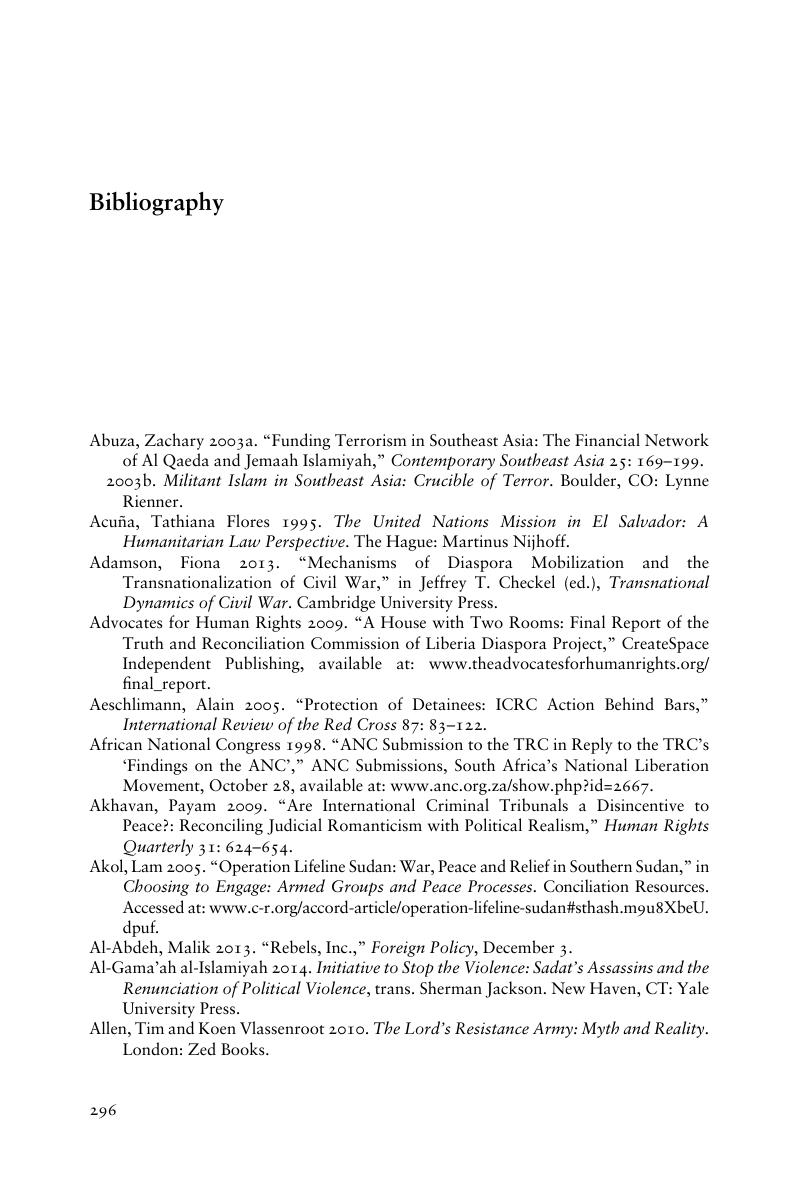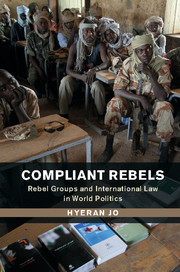Book contents
- Compliant Rebels
- Problems of International Politics
- Compliant Rebels
- Copyright page
- Dedication
- Contents
- Tables and Illustrations
- Acknowledgments
- Rebel Group Abbreviations
- Legal Instruments
- Part I Puzzle of Compliant Rebels
- Part II Evidence of Compliant Rebels
- Part III Implications of Compliant Rebels
- Book part
- Bibliography
- Index
- References
Bibliography
Published online by Cambridge University Press: 05 September 2015
- Compliant Rebels
- Problems of International Politics
- Compliant Rebels
- Copyright page
- Dedication
- Contents
- Tables and Illustrations
- Acknowledgments
- Rebel Group Abbreviations
- Legal Instruments
- Part I Puzzle of Compliant Rebels
- Part II Evidence of Compliant Rebels
- Part III Implications of Compliant Rebels
- Book part
- Bibliography
- Index
- References
Summary

- Type
- Chapter
- Information
- Compliant RebelsRebel Groups and International Law in World Politics, pp. 296 - 317Publisher: Cambridge University PressPrint publication year: 2015



